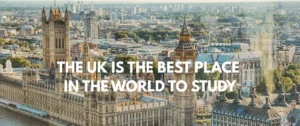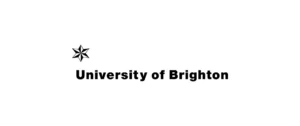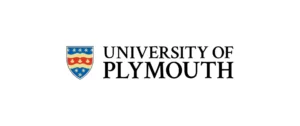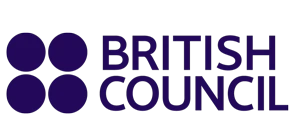Birmingham City University (BCU), located in the heart of Birmingham, England, is a forward-thinking public university renowned for its industry-aligned courses, vibrant multicultural community, and exceptional employability outcomes. Founded in 1843 as the Birmingham College of Art, BCU has evolved into a modern institution serving over 24,000 students from more than 80 countries. With its main campuses in City Centre and City South, alongside specialist facilities like the School of Jewellery, BCU offers a dynamic blend of practical education and cultural immersion in the UK’s second-largest city. Ranked among the top 100 UK universities (The Complete University Guide 2025), BCU is celebrated for its professional accreditations and 97% graduate employment rate within six months (HESA 2023). This guide explores BCU’s campuses, academic offerings, rankings, facilities, and more, making it an essential resource for international students.
History and Evolution
BCU traces its roots to 1843, when the Birmingham College of Art was established, later becoming the Birmingham Polytechnic in 1971 through the merger of five colleges. It gained university status in 1992 under the Further and Higher Education Act, adopting the name Birmingham City University in 2007 to reflect its regional pride. Over the years, BCU has expanded its academic scope and facilities, investing £340 million in campus developments like the Curzon Building and STEAMhouse. Despite challenges, such as the 2018 closure of its Perry Barr campus, BCU’s focus on employability and innovation has earned it accolades, including a Silver rating in the Teaching Excellence Framework (2023). Its motto, “Age Quod Agis” (Do What You Are Doing), underscores its commitment to excellence.
Campuses of Birmingham City University
BCU operates multiple campuses in Birmingham, with its primary sites being City Centre and City South, alongside specialist facilities like the School of Jewellery and Royal Birmingham Conservatoire. Each campus offers tailored facilities and a distinct academic focus.
City Centre Campus
Located in Birmingham’s bustling city centre, the City Centre Campus is a modern hub comprising several buildings, including the Curzon Building, Millennium Point, and Parkside. It serves around 15,000 students and hosts faculties like Arts, Design and Media, Business, Law, and Social Sciences. Key features include:
-
Facilities: Industry-standard studios for media, fashion, and design; the Curzon Building’s IT suites and mock courtrooms; and Millennium Point’s virtual reality labs. The Parkside Building houses film and photography studios, while STEAMhouse fosters innovation with 3D printing and prototyping spaces.
-
Accommodation: Over 1,400 rooms in halls like The Heights and Staniforth House, offering en-suite options from £130–£180 per week, including Wi-Fi and utilities. First-year students are prioritised, with private rentals nearby averaging £500–£700 per month.
-
Student Life: Steps from Birmingham’s Bullring, Grand Central, and cultural venues, the campus buzzes with energy. Over 100 societies, from the Afro-Caribbean Society to BCU Entrepreneurs, and events like Freshers’ Week create a vibrant community.
The campus’s proximity to the HS2 railway hub enhances connectivity, though some students note parking constraints in the urban setting.
City South Campus
Situated in Edgbaston (B15 3TN), the City South Campus focuses on health, education, and life sciences, serving around 5,000 students. It replaced the former Perry Barr site in 2018, reflecting BCU’s £340 million investment. Highlights include:
-
Facilities: Advanced simulation labs for nursing, midwifery, and physiotherapy; sports science facilities with biomechanics labs; and a specialist library with digital resources. The Seacole Building offers clinical training suites.
-
Accommodation: Shared with City Centre halls, with regular shuttle buses connecting campuses. Edgbaston’s leafy setting offers affordable private rentals.
-
Student Life: A quieter, professional atmosphere, with societies like the Nursing Society and sports facilities including pitches and gyms. Nearby Cannon Hill Park is perfect for relaxation.
City South’s focus on health professions ensures hands-on training, though its smaller size means fewer extracurriculars compared to City Centre.
Specialist Facilities
-
School of Jewellery: Located in Birmingham’s historic Jewellery Quarter (B1 3PA), this world-renowned facility offers courses in jewellery design, gemmology, and horology. It features workshops with cutting-edge tools and hosts 1,000 students.
-
Royal Birmingham Conservatoire: A leading music and acting school in the City Centre (B4 7XR), with state-of-the-art performance venues like the Bradshaw Concert Hall. It serves 1,200 students and is accredited by the Federation of Drama Schools.
-
Vittoria Street: A smaller site in the Jewellery Quarter, supporting art and design programmes with studio spaces.
These facilities enhance BCU’s reputation for creative and professional education, though they’re more specialised and less central than main campuses.
Academic Offerings and Courses
BCU offers over 300 undergraduate, postgraduate, and research programmes across five faculties, designed for employability and accredited by bodies like the Chartered Institute of Marketing and Nursing and Midwifery Council. The faculties are:
-
Arts, Design and Media: Fine art, fashion design, media production, and music, with strengths at the School of Jewellery and Royal Birmingham Conservatoire. Courses include BA Animation and MA Film Distribution.
-
Business, Law and Social Sciences: Business management, accounting, law, criminology, and psychology, with the Triple Crown-accredited MBA programme.
-
Computing, Engineering and the Built Environment: Cybersecurity, civil engineering, and games design, supported by virtual reality and robotics labs.
-
Health, Education and Life Sciences: Nursing, midwifery, physiotherapy, and sports science, with clinical placements at City South.
-
Birmingham Institute of Education: Teacher training and education studies, ranked top 20 UK for primary education (The Guardian 2025).
BCU’s Graduate+ programme embeds employability skills, offering placements, volunteering, and entrepreneurship training. Foundation years, distance learning, and short courses cater to diverse learners, with 97% of graduates employed or in further study within six months (HESA 2023). International students benefit from pre-sessional English courses.
Rankings and Reputation
BCU is a teaching-focused university with a growing research profile, earning a Silver rating in the Teaching Excellence Framework (2023). Recent rankings include:
-
QS World University Rankings 2025: 801–1000 globally, reflecting its international student base.
-
The Complete University Guide 2025: 92nd in the UK, with top 20 rankings for education and jewellery design.
-
The Guardian University Guide 2025: 67th in the UK, with media studies and music in the top 30.
-
Graduate Employability: 97% employment rate within six months, among the UK’s highest (HESA 2023).
Students praise BCU’s practical courses and industry links, with facilities like Shareville (a virtual learning environment) enhancing engagement. However, its global ranking lags behind research-intensive universities, and some StudentCrowd reviews note library resource strain during peak times. BCU’s diversity (50% ethnic minority students) and employability focus are standout strengths.
Tuition Fees and Cost of Living
Tuition fees for 2025 are:
-
Undergraduate:
-
UK Students: £9,250 per year.
-
International Students: £16,085–£19,020 per year, with specialist courses like music at £24,200.
-
-
Postgraduate:
-
UK Students: £8,500–£12,000 per year.
-
International Students: £17,710–£22,450 per year, with MBAs up to £26,000.
-
-
Living Costs: £10,224–£12,500 for 9 months, including accommodation (£130–£180/week), food, transport, and entertainment. Birmingham’s cost of living is 30% lower than London, with student discounts at Bullring and local venues.
Scholarships include the International Merit Scholarship (£2,000), BCU Undergraduate Scholarship (£1,500), and music bursaries. Part-time work (up to 20 hours per week for international students) via the ASK service offers roles like student ambassador or retail, with wages of £11.50–£15/hour.
Admission Requirements
BCU’s admission process is accessible, with a 70% acceptance rate. General entry requirements for 2025 include:
-
Undergraduate:
-
Five GCSEs at grade C/4 or above, including English and Maths.
-
Three A-Levels (e.g., BBC–BBB) or equivalent, such as Standard XII (65% all boards) for international students.
-
Foundation programmes for lower qualifications (minimum 50% GPA).
-
-
Postgraduate:
-
A 2:2 honours degree or equivalent (e.g., 60% in a recognised bachelor’s degree).
-
Work experience for mature applicants via Recognition of Prior Learning.
-
-
English Proficiency:
-
IELTS: 6.0 overall (no band below 5.5) for most programmes; 6.5 for health and education.
-
Alternatives: TOEFL, PTE, or BCU’s pre-sessional English courses.
-
Applications are via UCAS for undergraduates (deadlines: September intake by 29 January 2025, January intake by 31 October 2024) or the university’s portal for postgraduates. International students submit academic transcripts, a personal statement, and financial proof for the Student Visa. Decisions take 2–4 weeks. Book a free consultation with Universitio for support.
Student Support and Campus Life
BCU prioritises student welfare with robust services:
-
Academic Support: Personal tutors, the Centre for Academic Success for study skills, and digital resources like Canvas and JSTOR. The ASK service offers personalised academic and wellbeing support.
-
Career Services: The Graduate+ programme, careers fairs, and Unitemps provide placements, CV workshops, and part-time jobs. BCU’s 97% employment rate reflects strong industry links with firms like Jaguar Land Rover.
-
Wellbeing: Free counselling, disability support, and a multifaith chaplaincy. The BCU App ensures 24/7 access to support.
-
International Support: Visa guidance, airport pickups, and orientation programmes. The International Student Society hosts events like Global Week.
Campus life is electric, with over 100 societies, sports clubs (e.g., BCU Lions football), and events like the Big BCU Welcome. Birmingham’s multicultural vibe—think Chinatown, Digbeth’s street art, and the Frankfurt Christmas Market—complements the student experience. Some students note urban noise, but the city’s diversity and affordability are major draws.
Facilities and Infrastructure
BCU’s £340 million investment has created cutting-edge facilities:
-
Libraries: Curzon Library (City Centre) and Seacole Library (City South) offer 24/7 access, 1,000+ study spaces, and digital tools like RefWorks.
-
Specialist Labs: Media production suites, nursing simulation wards, cybersecurity labs, and jewellery workshops with CAD software.
-
Creative Spaces: STEAMhouse’s prototyping labs, Conservatoire’s concert halls, and Parkside’s film studios.
-
Sports Facilities: City South’s biomechanics labs, gyms, and pitches; partnerships with local sports centres like Edgbaston Stadium.
-
Social Spaces: The Eagle & Ball pub, Curzon Atrium, and student markets foster community.
Accessibility features include wheelchair-friendly paths, Blue Badge parking, and assistive technology. Some students suggest expanding library resources at City South.
International Student Experience
With students from over 80 countries, BCU is a global hub. Support includes:
-
Visa Assistance: The International Office ensures compliance with UKVI financial proof requirements.
-
Scholarships: Up to £2,000 via merit-based awards, plus regional bursaries.
-
Employability: Placements with 1,000+ employers, including BBC and Siemens. Unitemps supports visa-compliant part-time work.
-
Cultural Integration: Events like Diwali and International Week, plus language support and the BCU Global Buddies programme.
Birmingham’s diversity (43% ethnic minority population) and cultural vibrancy—think Balti Triangle and Symphony Hall—make it welcoming, though urban living costs require budgeting.
Challenges and Criticisms
-
Living Costs: Birmingham’s expenses (£10,224–£12,500/year) are moderate but higher than smaller cities.
-
Facilities: Library crowding during exams, per StudentCrowd reviews, though investments are ongoing.
-
Research Profile: BCU’s global ranking (801–1000) trails Russell Group universities, less critical for taught programmes.
-
Urban Setting: Noise and parking issues in the city centre, mitigated by campus security and public transport (e.g., West Midlands Metro).
BCU’s high employability and inclusive community outweigh these for most students.
Why Choose Birmingham City University?
BCU is perfect for students seeking:
-
Employability: 97% graduate employment rate with industry placements.
-
Diversity: 50% ethnic minority students from 80+ countries.
-
Innovation: £340 million in modern facilities like STEAMhouse and the Conservatoire.
-
Location: Birmingham’s vibrant, affordable city centre, 90 minutes from London.
-
Support: Graduate+ and ASK services for academic and career success.
Whether you’re studying nursing, media, or jewellery design, BCU equips you for a global career.
How to Apply
To join BCU in 2025:
-
Choose a Course: Browse 300+ programmes at www.bcu.ac.uk/courses.
-
Check Requirements: Verify academic and English criteria (e.g., IELTS 6.0).
-
Apply: Use UCAS for undergraduates or the university’s portal for postgraduates. Submit transcripts, a personal statement, and English scores.
-
Secure CAS: Provide financial proof and deposits (e.g., £2,000 for international students).
-
Apply for a Visa: Use your CAS for a Student Visa.
For expert support, book a free consultation with Universitio.
Conclusion
Birmingham City University is a gateway to opportunity in the UK’s dynamic second city. Its City Centre and City South campuses, alongside specialist facilities like the School of Jewellery, offer cutting-edge education in a multicultural hub. With a 97% employment rate, industry-accredited courses, and a £340 million investment in facilities, BCU empowers students from over 80 countries to launch their careers. Whether you’re drawn to its creative studios, health labs, or vibrant student life, BCU is where ambition meets achievement. Explore your future at Universitio.com and start your journey with a free consultation today.









